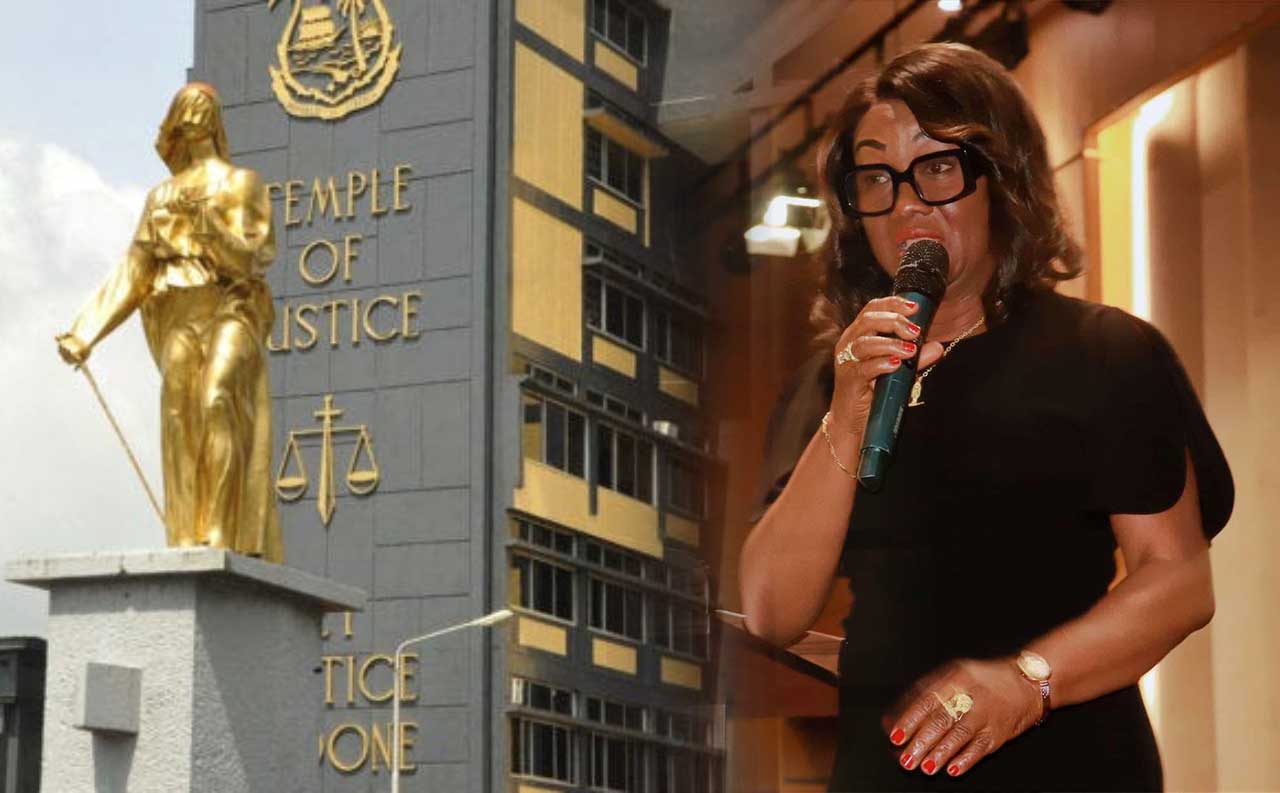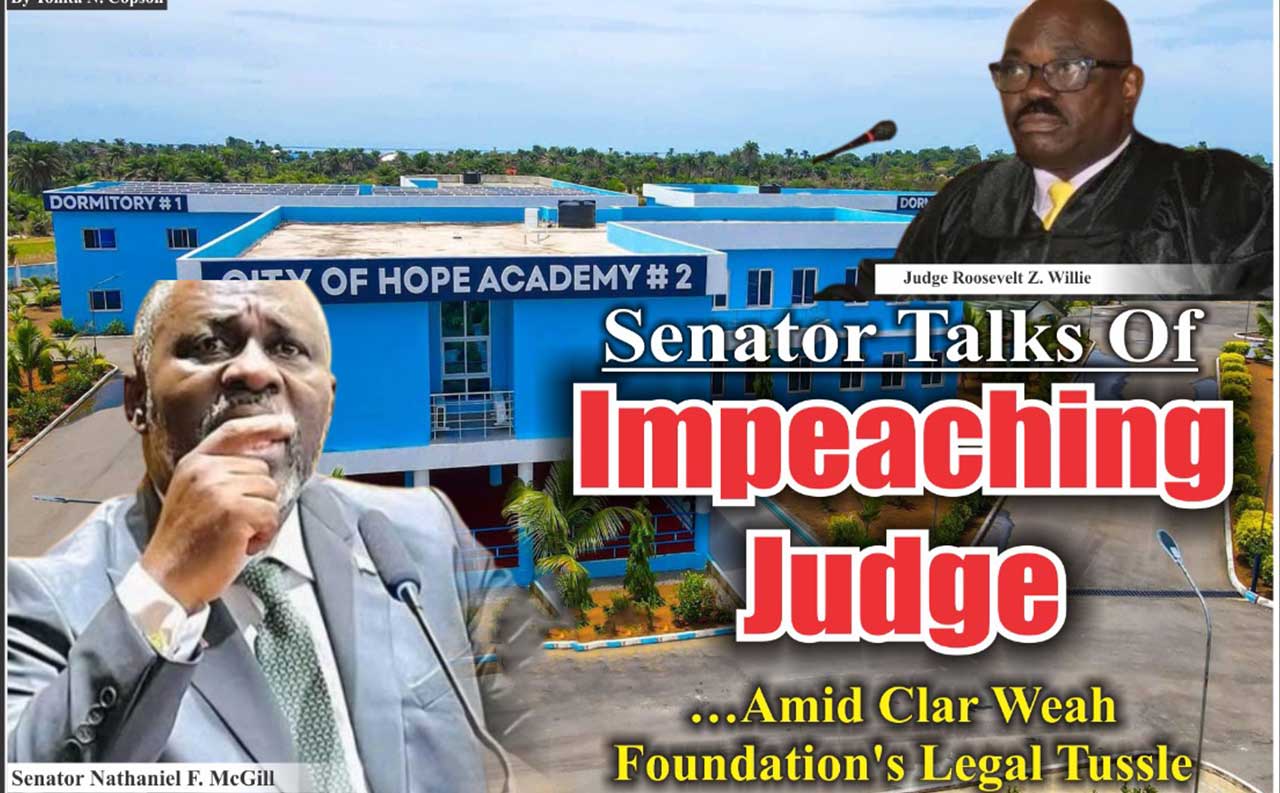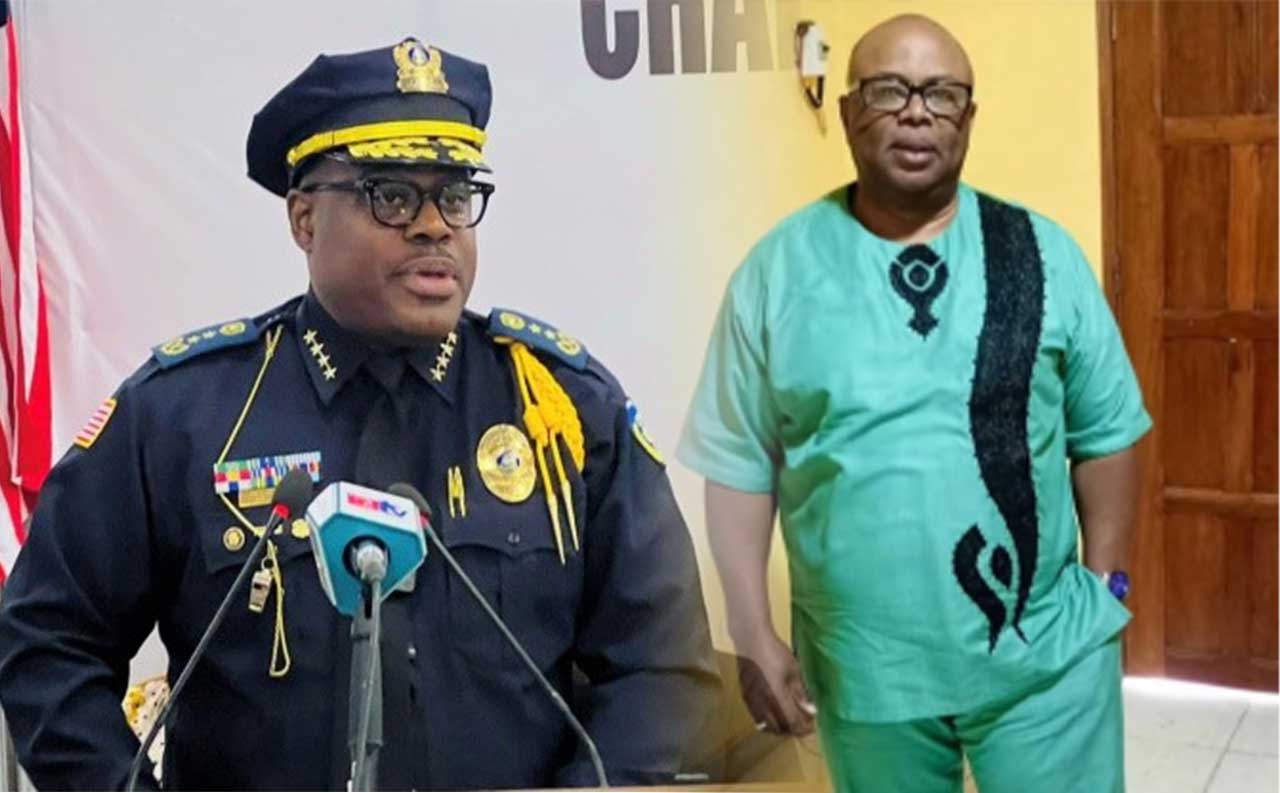The Chief Justice of the Supreme Court of Liberia is calling on the newly inducted officers of the Liberian National Bar Association (LNBA) to shift the paradigm in the legal practice and explore new frontiers that reflect global trends.
Chief Justice Sie-A-Nyene G. Yuoh spoke over the weekend at the induction ceremony of Cllrs. Bornor Vamah, President, Juah Lawson, Vice President, Elisha T. J. Forkeyoh, Secretary General, and Atty. Yamie Shaibayo Williams as Treasure to stir the affairs for the next three years.
The Chief Justice said there is increasing demand for expertise in emerging fields such as intellectual property law, environmental law, energy law and cyber security law, especially given the global implications of climate change and technological advancement.
Thus, she said there is a need for continuous legal education, particularly in emerging fields of law, to ensure that lawyers are well-equipped to navigate modern challenges.
She said the innovation in legal practice should go hand-in-hand with ethical legal practices, which must remain the cornerstone of the Bar’s mission. “Your leadership will be defined by the positive impact you make, through actions and achievements,” the Supreme Court high priest said, while cautioning the new LNBA leadership to prioritize progress and reform within Liberia legal system.
As the new LNBA leadership takes up the mantle of responsibility, Chief Justice Yuoh calls for reform, innovation, and a renewed commitment to the rule of law, and urges the Bar to embrace modernization within the legal profession.
The Chief Justice said the judicial sector, like other branches of government, has experienced leadership changes from the highest courts to the lower benches. But despite these leadership shifts, the core principle of the law must remain steadfast.
“Transition in leadership should never alter the fundamental truth that the law is the law, and must always be upheld. The law is not subject to reason or personal interest; it stands as an immutable force.”
Her firm reminder that “the law is the law, underscores her commitment to a judiciary governed by integrity, impartiality and unwavering adherence to the rule of law. She acknowledged the various expectations placed on the new leadership of both the judiciary and the legal profession, ranging from the aspirations of lawyers, judiciary employees, and the broader public, from better salaries and improved working conditions for legal professionals to more efficient case resolutions for citizens.
She said these demands must be understood in the context of the broader goal of upholding justice and ensuring the rule of law without compromise. Chief Justice Yuoh: “How will you give back to the legal profession and to your country? What will be the legacy of your leadership?”
These were the probing questions that encouraged the incoming leaders to focus on the broader impact of their roles, particularly in advancing the legal profession and addressing contemporary challenges.
At the same time, she said the country’s civil and criminal procedure laws must be modernized to keep pace with the demands of an evolving society, noting that without these crucial updates, the legal system could face unnecessary delays and inefficiencies that undermine justice.
By T.Q. Lula Jaurey



